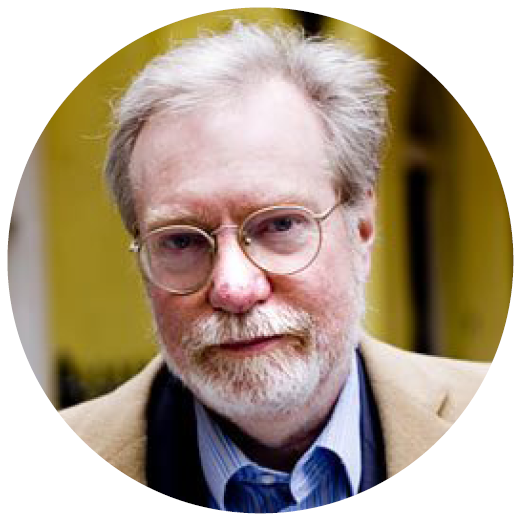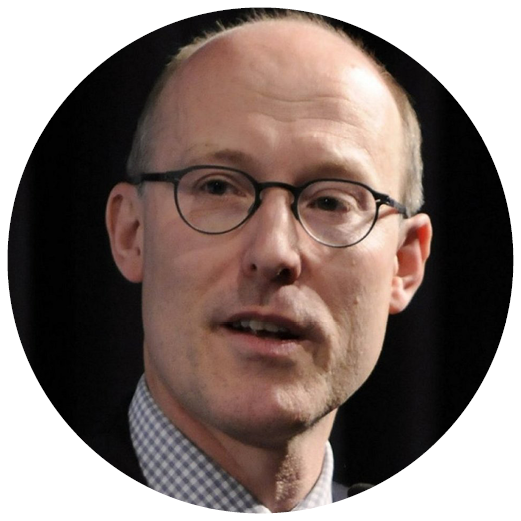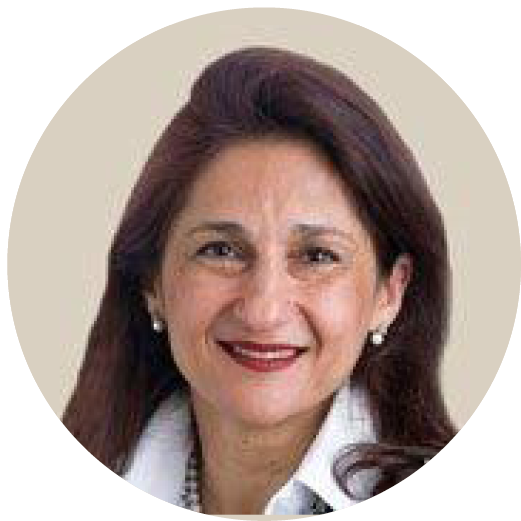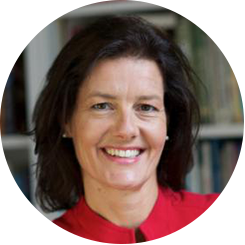Commissioners
The Commission is chaired by David Cameron. Donald Kaberuka and Adnan Khan (IGC/LSE) serve as co-chairs, and Tim Besley (LSE) and Paul Collier (Oxford) serve as its academic directors.
Chair
 David Cameron served as Prime Minister of the UK from 2010-2016. Under his leadership, the UK’s deficit was reduced by over two-thirds; one million businesses were set up; a record number of jobs were created; and Britain became the fastest-growing major advanced economy in the world. Internationally, he developed a foreign policy that addressed the new challenges of the Arab Spring, as well as a more aggressive Russia, while ensuring Britain played a full role in the global fight against ISIS. He chaired the 2013 G8 Summit in Northern Ireland, where he highlighted the global need for fair taxes, increased transparency, and open trade. During his time as Prime Minister, he increased UK aid spending to the UN target of 0.7% of gross national income, allocating 50% of the aid budget to fragile states and regions. He also co-chaired the UN high-level panel that launched the Sustainable Development Goals (SDGs).
David Cameron served as Prime Minister of the UK from 2010-2016. Under his leadership, the UK’s deficit was reduced by over two-thirds; one million businesses were set up; a record number of jobs were created; and Britain became the fastest-growing major advanced economy in the world. Internationally, he developed a foreign policy that addressed the new challenges of the Arab Spring, as well as a more aggressive Russia, while ensuring Britain played a full role in the global fight against ISIS. He chaired the 2013 G8 Summit in Northern Ireland, where he highlighted the global need for fair taxes, increased transparency, and open trade. During his time as Prime Minister, he increased UK aid spending to the UN target of 0.7% of gross national income, allocating 50% of the aid budget to fragile states and regions. He also co-chaired the UN high-level panel that launched the Sustainable Development Goals (SDGs).
Co-chairs
 Donald Kaberuka is Senior Advisor at the private equity firm TPG/Satya and Special Envoy for the African Union’s Peace Fund. He served as the 7th President of the African Development Bank (AfDB) Group and Chairman of the Board of Directors from 2005-2015. Under his leadership, the AfDB tripled its capital from $30 billion to $100 billion and doubled its portfolio to $12 billion per annum. His leadership was characterised by a ‘big push’ on infrastructure which accounted for 60% of Bank activities, with total commitments of over $25 billion in transport, energy, water, urban development, and IT. Prior to joining the AfDB, he was Rwanda’s Finance Minister from 1997-2005, and in that capacity serving as Governor for Rwanda for the International Monetary Fund and the World Bank. Adnan Kh
Donald Kaberuka is Senior Advisor at the private equity firm TPG/Satya and Special Envoy for the African Union’s Peace Fund. He served as the 7th President of the African Development Bank (AfDB) Group and Chairman of the Board of Directors from 2005-2015. Under his leadership, the AfDB tripled its capital from $30 billion to $100 billion and doubled its portfolio to $12 billion per annum. His leadership was characterised by a ‘big push’ on infrastructure which accounted for 60% of Bank activities, with total commitments of over $25 billion in transport, energy, water, urban development, and IT. Prior to joining the AfDB, he was Rwanda’s Finance Minister from 1997-2005, and in that capacity serving as Governor for Rwanda for the International Monetary Fund and the World Bank. Adnan Kh an is Research and Policy Director at the IGC since 2009. He also teaches at LSE and has about 15 years of experience working in government and private sector, mostly as a member of the Pakistan Administrative Service, and about 10 years as a researcher and research facilitator. His public service included positions in the Pakistan National School of Public Policy, Education and Finance Ministries, and district administration. He has set up large-scale field experiments in collaboration with governments on taxation, public procurement, social protection, and entrepreneurship.
an is Research and Policy Director at the IGC since 2009. He also teaches at LSE and has about 15 years of experience working in government and private sector, mostly as a member of the Pakistan Administrative Service, and about 10 years as a researcher and research facilitator. His public service included positions in the Pakistan National School of Public Policy, Education and Finance Ministries, and district administration. He has set up large-scale field experiments in collaboration with governments on taxation, public procurement, social protection, and entrepreneurship.
Academic Directors
 Sir Paul Collier is Professor of Economics and Public Policy at the Blavatnik School of Government and a Professorial Fellow of St Antony’s College, Oxford. He is currently a Professeur invité at Sciences Po and a Director of the International Growth Centre. His research covers fragile states; the effects of aid and the problems of democracy in low-income and natural resources rich societies; urbanisation in low-income countries; private investment in African infrastructure and changing organisational cultures.
Sir Paul Collier is Professor of Economics and Public Policy at the Blavatnik School of Government and a Professorial Fellow of St Antony’s College, Oxford. He is currently a Professeur invité at Sciences Po and a Director of the International Growth Centre. His research covers fragile states; the effects of aid and the problems of democracy in low-income and natural resources rich societies; urbanisation in low-income countries; private investment in African infrastructure and changing organisational cultures.  Sir Timothy Besley is Professor of Economics and Political Science and W. Arthur Lewis Professor of Development Economics at the LSE. He is also a Fellow of All Souls College, Oxford. From September 2006 to August 2009, he served as an external member of the Bank of England Monetary Policy Committee and since 2015 has been a member of the UK’s National Infrastructure Commission. His research is mainly in the areas of Development Economics, Public Economics and Political Economy.
Sir Timothy Besley is Professor of Economics and Political Science and W. Arthur Lewis Professor of Development Economics at the LSE. He is also a Fellow of All Souls College, Oxford. From September 2006 to August 2009, he served as an external member of the Bank of England Monetary Policy Committee and since 2015 has been a member of the UK’s National Infrastructure Commission. His research is mainly in the areas of Development Economics, Public Economics and Political Economy.
Commissioners
 Robin Burgess is a Director of the IGC, and Professor of Economics and Director of the Economic Organisation and Public Policy Programme at the LSE. His areas of research interest include development economics, public economics, political economy, labour economics, and environmental economics. He has published on a variety of topics – natural disasters, mass media, rural banks, land reform, labour regulation, industrial policy, taxation, poverty, and growth.
Robin Burgess is a Director of the IGC, and Professor of Economics and Director of the Economic Organisation and Public Policy Programme at the LSE. His areas of research interest include development economics, public economics, political economy, labour economics, and environmental economics. He has published on a variety of topics – natural disasters, mass media, rural banks, land reform, labour regulation, industrial policy, taxation, poverty, and growth.  James D. Fearon is Geballe Professor in the School of Humanities and Sciences and Professor of Political Science at Stanford University, and a Senior Fellow at Stanford’s Freeman-Spogli Institute for International Studies. His research has focused primarily on political violence, and in particular on civil and interstate war. He has also published on the theory of democracy, foreign aid and institution building, post-conflict reconstruction, and international peacekeeping operations.
James D. Fearon is Geballe Professor in the School of Humanities and Sciences and Professor of Political Science at Stanford University, and a Senior Fellow at Stanford’s Freeman-Spogli Institute for International Studies. His research has focused primarily on political violence, and in particular on civil and interstate war. He has also published on the theory of democracy, foreign aid and institution building, post-conflict reconstruction, and international peacekeeping operations.  Stephen Krasner is the Graham H. Stuart Professor of International Relations; a Senior Fellow at the Freeman Spogli Institute (FSI), and a Senior Fellow at the Hoover Institution at Stanford University. At Stanford, he has served as the senior associate dean for the Social Science; the deputy director of the FSI; the director of the Center on Law, Development, Democracy, and the Rule of Law; and the chair of the Political Science Department. From 2005-2007, he served as the Director of Policy Planning at the US Department of State, where he was a driving force behind reforms to more effectively target US foreign aid and involved in activities to promote good governance and democratic institutions globally.
Stephen Krasner is the Graham H. Stuart Professor of International Relations; a Senior Fellow at the Freeman Spogli Institute (FSI), and a Senior Fellow at the Hoover Institution at Stanford University. At Stanford, he has served as the senior associate dean for the Social Science; the deputy director of the FSI; the director of the Center on Law, Development, Democracy, and the Rule of Law; and the chair of the Political Science Department. From 2005-2007, he served as the Director of Policy Planning at the US Department of State, where he was a driving force behind reforms to more effectively target US foreign aid and involved in activities to promote good governance and democratic institutions globally.  Nourah Mehyar is the co-founder and CEO of Nafith Logistics, an IFC investee, which employs over 350 multinationals, operating a unique trade and transport facilitation network covering 90% of Jordan’s freight. Nafith is currently in a public-private partnership with the Government of Iraq to manage truck logistics at multiple borders and ports, with the goal of substantially improving transportation and logistics efficiency in Iraq. In 2016, she became the first recipient of the Multilateral Investment Guarantee Agency (MIGA) Gender CEO Award for her work in integrating women into a male-dominated workforce in an area where gender parity is close to non-existent. She also oversees business development in fragile and conflict-affected situations with a hands-on approach.
Nourah Mehyar is the co-founder and CEO of Nafith Logistics, an IFC investee, which employs over 350 multinationals, operating a unique trade and transport facilitation network covering 90% of Jordan’s freight. Nafith is currently in a public-private partnership with the Government of Iraq to manage truck logistics at multiple borders and ports, with the goal of substantially improving transportation and logistics efficiency in Iraq. In 2016, she became the first recipient of the Multilateral Investment Guarantee Agency (MIGA) Gender CEO Award for her work in integrating women into a male-dominated workforce in an area where gender parity is close to non-existent. She also oversees business development in fragile and conflict-affected situations with a hands-on approach.  Minouche Shafik is Director of the London School of Economics and Political Science. She was formerly Deputy Governor for Markets and Banking at the Bank of England, where she had responsibility for the Bank’s balance sheet and its interaction with financial markets. She is a member of the Monetary Policy Committee, the Financial Policy Committee, and the Board of the Prudential Regulation Authority. Prior to joining the Bank, she was Deputy Managing Director of the International Monetary Fund (2011-2014) responsible for policy and programmes in Europe and the Middle East, and also served as Permanent Secretary of the UK’s Department for International Development.
Minouche Shafik is Director of the London School of Economics and Political Science. She was formerly Deputy Governor for Markets and Banking at the Bank of England, where she had responsibility for the Bank’s balance sheet and its interaction with financial markets. She is a member of the Monetary Policy Committee, the Financial Policy Committee, and the Board of the Prudential Regulation Authority. Prior to joining the Bank, she was Deputy Managing Director of the International Monetary Fund (2011-2014) responsible for policy and programmes in Europe and the Middle East, and also served as Permanent Secretary of the UK’s Department for International Development.  Babatunde Soyoye, a Nigerian national, is a co-founder and Managing Partner of Helios Investment Partners, one of the largest Africa-dedicated private investment firms, managing approximately $3 billion. Helios helps African businesses grow by being a provider of capital across the capital structure and has investments in businesses across seven sectors and operations in over 40 African countries. Prior to forming Helios, he was a Principal at TPG Capital in London responsible for telecommunications and media investments across Europe. He received a BEng in Engineering and an MBA from the University of London (Kings & Imperial College). He is a fluent Yoruba speaker.
Babatunde Soyoye, a Nigerian national, is a co-founder and Managing Partner of Helios Investment Partners, one of the largest Africa-dedicated private investment firms, managing approximately $3 billion. Helios helps African businesses grow by being a provider of capital across the capital structure and has investments in businesses across seven sectors and operations in over 40 African countries. Prior to forming Helios, he was a Principal at TPG Capital in London responsible for telecommunications and media investments across Europe. He received a BEng in Engineering and an MBA from the University of London (Kings & Imperial College). He is a fluent Yoruba speaker.  Jennifer Widner is Professor of Politics and International Affairs at Princeton University and Director of Innovations for Successful Societies. Before joining the Princeton faculty in 2004-5, she taught at Harvard and the University of Michigan. Her current research focuses on the political economy of institutional reform, government accountability, and service delivery. She is author of Building the Rule of Law (W. W. Norton), a study of courts and law in Africa, and she has published articles on a variety of topics in Democratization, Comparative Politics, Comparative Political Studies, Journal of Development Studies, The William & Mary Law Review, Daedalus, the American Journal of International Law, and other publications.
Jennifer Widner is Professor of Politics and International Affairs at Princeton University and Director of Innovations for Successful Societies. Before joining the Princeton faculty in 2004-5, she taught at Harvard and the University of Michigan. Her current research focuses on the political economy of institutional reform, government accountability, and service delivery. She is author of Building the Rule of Law (W. W. Norton), a study of courts and law in Africa, and she has published articles on a variety of topics in Democratization, Comparative Politics, Comparative Political Studies, Journal of Development Studies, The William & Mary Law Review, Daedalus, the American Journal of International Law, and other publications.  Ngaire Woods is the inaugural Dean of the Blavatnik School of Government and Professor of Global Economic Governance at the University of Oxford. Her research focuses on global economic governance, the challenges of globalisation, global development, and the role of international institutions. She founded the Global Economic Governance Programme and is co-founder (with Robert O. Keohane) of the Oxford-Princeton Global Leaders Fellowship programme. She led the creation of the Blavatnik School of Government at Oxford and, before her appointment as Dean, served as the School’s Academic Director.
Ngaire Woods is the inaugural Dean of the Blavatnik School of Government and Professor of Global Economic Governance at the University of Oxford. Her research focuses on global economic governance, the challenges of globalisation, global development, and the role of international institutions. She founded the Global Economic Governance Programme and is co-founder (with Robert O. Keohane) of the Oxford-Princeton Global Leaders Fellowship programme. She led the creation of the Blavatnik School of Government at Oxford and, before her appointment as Dean, served as the School’s Academic Director.

